
WILLS, TESTATORS AND PROBATE COURT



The Nigeria Security and Civil Defence Corps was first introduced in May 1967 during the Nigerian Civil War within the then Federal Capital Territory of Lagos for the purpose of sensitization and protection of the civil populace. It was then known as Lagos Civil Defence Committee.
On inception, the Corps had the objective of carrying out some educational and enlightenment campaigns in and around the Federal Capital of Lagos to sensitize members of the civil populace on enemy attacks and how to save themselves from danger as most Nigerians living in and around Lagos territory then had little or no knowledge about war and its implications.
In 1984, the Corps was transformed into a National security outfit and in 1988, there was a major re-structuring of the Corps that led to the establishment of Commands throughout the Federation, including Abuja, and the addition of special functions by the Federal Government.
On 28th June 2003, an Act to give statutory backing to the NSCDC passed by the National Assembly was signed into law by Chief Olusegun Obasanjo, GCFR, the former president and Commander in chief of the Armed Forces, Federal Republic of Nigeria.
The most recent legislation regarding the NSCDC is the NIGERIA SECURITY AND CIVIL DEFENCE CORPS
(AMENDMENT) ACT, 2007, which is an Act to amend the Nigeria Security and Civil Defence Corps Act, 2003 in order to enhance its capacity to provide protection, crisis resolution and security to public infrastructures.
By virtue of the new law, the Civil Defence Corps has the following duties:
• Assist in the maintenance of peace and order and in the protection and rescuing of the Civil population during the period of emergency.
• Recommend to the Minister the registration of private guard companies,
• From time to time, inspect the premises of private guard companies, their training facilities and approve same if it is up to standard.
• Supervise and monitor the activities of all private guard companies and keep a register for that purpose.
• Periodically organize workshop, and training courses for private guard companies and seal up any private guard company which operates without a valid licence.
• Maintain twenty-four hour surveillance over infrastructures, sites and projects for the Federal , State and Local Government.
• Enter and search any premises and seize any material suspected to have been used in vandalization or suspected proceed of vandalization.
• Enter and search premises of any suspected illegal dealer in petroleum products or material used by Power Holding Company of Nigeria, Postal Services, Nigeria Telecommunication or for any other public utility or infrastructure;
• Have power to arrest with or without a warrant , detain , investigate and institute legal proceedings by or in the name of the Attorney-General of the Federation in accordance with the provisions of the constitution of the Federal Republic of Nigeria against any person who is reasonably suspected to have committed an offence under this Act or is involved in any:
(i) Criminal activity
(ii) Chemical poison or oil spillage nuclear waste, poisoning
(iii) Industry espionage or fraud;
(iv) Activity aimed at frustrating any government program or policy;
(v) Riot, civil disorder, revolt, strike, or religious unrest.
(vi) Power transmission lines, oil pipelines, NIPOST cables, equipment, water boad pipes or equipment vandalisation
• Monitor the activities of religious bodies and trade associations.
• Monitor, investigate, and take every necessary step to forestall any planned Act of terrorism particularly.
– Cult and Ethnic militia activities
– Criminal activities aimed at depriving citizens of their properties or lives
– Syndicate activity aimed at defrauding the Federal, State or Local Governement;
• Monitor, investigate, and take every necessary step to forestall any act of terrorism and report same to appropriate Federal Security Agency.
• Provide necessary warning for the civilian population in times of danger
• Evacuate the civilian population from danger areas.
• Provide and manage shelters for civilians during period of emergency.
• Asist in the decontamination and in the taking of precautionary measures during any period of emergency.
• Carry out rescue operations and control volatile situations.
• Assist in the provision of emergency medical services, including first aid, during any period of emergency.
• Detect and demarcate any danger area.
• Assist the Federal and State Fire Service in Fire-fighting operation.
• Assist in the distribution of emergency supplies.
• Provide assistance to restore and maintain order in distressed areas in any period of emergency.
• Assist in repairing indispensable public utilities during any period of emergency
• Provide intelligence information to the Ministry on any matter relating to:
(i) Crime control generally;
(ii) Riot, disorder, revolt, strike or religious unrest;
(iii) Subversive activity by members of the public aimed at frustrating any government programme or policy;
(iv) Industrial action and strike aimed at paralysing Government activities;
(v) Any other matter as may be directed by the Minister; and
(vi) Have power to arrange and mediate in the settlement of disputes among willing members of the public.
Adedunmade Onibokun Esq
@adedunmade
dunmadeo@yahoo.com
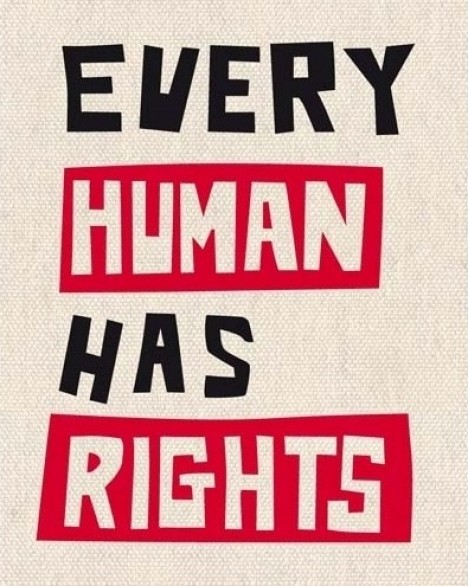

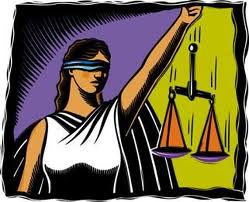

Trespass to land is a tort that is committed when an individual or the object of an individual intentionally or negligently enters the land of another without a lawful excuse. In other words A will commit the tort of trespass to land if he crosses the boundary of B’s land,when he has no lawful justification or excuse for doing so. A will also commit the tort of trespass to land if he directly causes some object or matter to pass onto B’s land when he has no lawful justification or excuse for doing so. In some jurisdictions, this rule may also apply to entry upon public land having restricted access.
In order to establish that A committed the tort of trespass to land, B does not have to prove that when A crossed the boundary he intended to trespass on B’s land; or that when A crossed the boundary, he knew or ought to have known that there was a risk he would trespass on B’s land. Indeed A will have committed the tort of trespass to land even if, when he crossed the boundary of B’s land, he honestly believed that he was remaining on land where he was permitted to be. An honest mistake by A is not a defence to the tort of trespass to land.
It must be noted that trespass is actionable per se, which means that it is actionable regardless of whether B suffers any consequential damage. However, suppose that A at some time crossed the boundary of B’s land. A will only have committed the tort of trespass to land when he crossed the boundary of B’s land if he were in control of his body when he crossed the boundary.If A forces B unwillingly onto C’s land, C will not have action in trespass against B, because B’s actions were involuntary. C may instead claim against A. Furthermore, if B is deceived by A as to the ownership or boundaries of C’s land, A may be jointly liable with B for B’s trespass.
For a trespass to be actionable, the defaulting party must voluntarily go to a specific location, but need not be aware that he entered the property of a particular person. In most jurisdictions, if a person were to accidentally enter onto private property, there would be no trespass, because the person did not intend any violation. However, in Australia, negligence may substitute the requirement for intent. Moreover, B will only be able to sue someone for trespass on a particular piece of land if he was in possession of the land at the time of the alleged trespass. Possession here does not mean physical possession but actually legal possession. Where the land is held under a tenancy or lease,it is the tenant that will sue.
If a trespass is actionable and no action is taken within reasonable or prescribed time limits, the land owner may forever lose the right to seek a remedy, and may even forfeit certain property right. In some jurisdictions trespass while in possession of a firearm, which may include a low-power air weapon without ammunition, constitutes a more grave crime of armed trespass.
If A has crossed the boundary of B’s land, there are many different ways in which A could establish that he had a lawful justification or excuse for crossing that boundary,some of these excuses include;
1. Licence ( consent) meaning that he had the landlord’s permission to enter into the land.
2. Necessity meaning that there was a case of immediate danger or emergency which neccesitated the entry into the other’s boundary.
A court may order payment of damages or grant an injunction restraining anyone from further entering into the land as remedy for the tort.
Adedunmade Onibokun Esq.
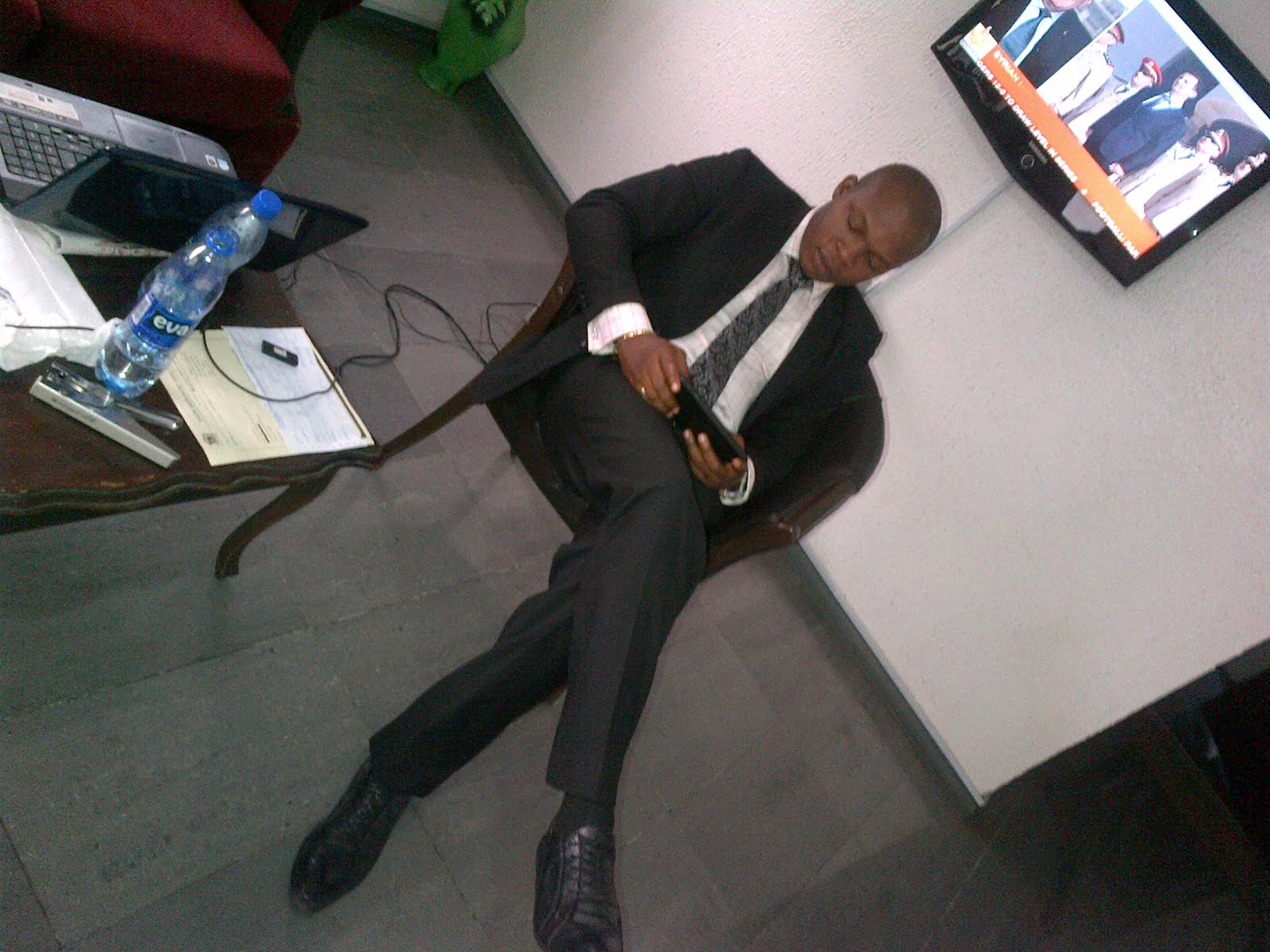

Life has shown us in different times that more than we need anyone, we need a doctor. Medical or traditional, a doctor is our best friend whenever our human body fails us. And bodies like every natural thing have moments of failure. This body failure moment of our life is naturally inevitable. And no matter how strong we suppose we are, we have all had a cause to take some drugs either prescribed by some hospital guys or by our native fathers. Needing or having a doctor is as good as having a ‘mechanic’ to work on your car whenever you feel it is malfunctioning and it is only on this note that it could be pointed at the outset that this is no attempt to check
out who is more important between a lawyer and a doctor or any other professional for that matter, because if I am faced with this poser, I would definitely shelve my sentiment and keep my professional pride to give the vote to a doctor. This seems settled.
Taking a cue from the above rhetorical argument, one could safely answer the question; ‘when do we need a doctor?’ by confidently answering that we need a doctor when we are feeling sick and particularly when we are sick. But to make a fool out of the learned man, all you need to ask him is when one needs his services. The answer is neither here nor there. It is like a scenario-based question, the answers depend mostly on the understanding and view of the situation at hand. It would not totally amount to a complete error to say that we need lawyers when trouble is approaching or when we are already in trouble. This is because trouble is what a lawyer’s work is all about. A lawyer is trained to be a trouble warrior. But what happens before trouble?Troubles like illness take you to a doctor, but you need a lawyer before you fall sick or before you fall into trouble.
Although a lawyer would entertain your problems no matter how complex, in so far as it is legally probable, nevertheless, you need him more when your body mechanism is running at the optimum and maximum level and you are in good control of yourself. Your psychological stability is very much needed before you consult a lawyer, because an unstable mind cannot effectively discuss all his issues with someone who will take care of them. In fact the instability of some clients is one of the reasons why lawyers a times get it all wrong. A lawyer is better as your friend when all is well, as this is when he can best serve and advise you. It is a wrong and a lay perception to hold that you need a lawyer when a problem arises.
This is even more wrong in the sense that lawyers would hardly get you out of trouble when they do not know you before you got into the trouble.In an attempt to practically drive home this point, a landlord for instance needs the service of a lawyer more when he is entering into a tenancy agreement with a tenant than when he is having troubles to recover possession of his premises from a stubborn tenant who has refused to quit and deliver possession after the supposed expiration of a faulty tenancy agreement. Research has also shown that only two out of ten people get their legal issues resolved by a lawyer they never met until the issues arise. This analysis is more evident in criminal matters where some accused persons meet their lawyers in court or their family members hire a lawyer on their behalf. At this stage of client desperation, the best a lawyer could do is to manage the situation as it is.
All a lawyer would seek is to ensure that the matter does not degenerate and whenever his professional might is exhausted and he feels he has fulfilled his professional obligation to the client, he rests his case in the court.The court is the place that many laymen have over the years misconceived as a lawyer’s workshop. It is even striking that some people think lawyers work in the court from morning to night, just like a doctor does in a hospital. Some elderly men have also not washed themselves from the laughable childhood presumptions that lawyers are same as judges. These funny misconceptions and many others like the age-long ‘lawyers are liars’ belief’ have led many into problems that a simple understanding of the legal profession would have easily solved.
This situation is not also helped by lawyers whose professional carriage makes people to only know and admire them from afar. The truth is that we cannot put our pride aside and start advertising our practice, in fact our professional ethics forbid it, but we can educate and inform people about what lawyers do and how we do it in the simplest form that they would find interesting and comprehensible. As lawyers, we can keep our Latin legal maxims and tell a man that ‘you cannot give what you do not have’ instead of saying ‘nemo dat non quod habet’ and saying no more. This is our responsibility as members of society as just as we benefit from the society by buying produce from seller or at Shoprite, the pepper seller also has a right to benefit from what we sell and of course, at a reasonable price.Perhaps the legal education could start from stating that the bulk of a lawyer’s work is done not in the courtroom, but in his office.
By his training, a lawyer rushes to the court only when it is the last resort or when the court is the only option depending on the circumstance of the case. A lawyer uses more of his time in his office as there are days that he will have no matter in court and there are also days that the court may not sit either due to a public holiday, vacation or the unavoidable absence of the judge. The law office is always the best place to consult a lawyer and discuss all matters with him. The fact that you have a lawyer as a family member does not give you the leverage to knock on the door of his house to consult him, just like you won’t rush your feverish son to the house of your doctor-brother, when the road of the hospital is not blocked.
The office of a lawyer apart from the fact that it commands professionalism attracts some sense of convenience and privacy to your discussion. And there are some issues that a law book standing on the office shelf could easily solve, while a lawyer could also there and then beckon on another professional colleague to put heads together all in your service and best interest.However, as grown men, we know as a matter of fact that our best interest includes that of our dependents. We find ourselves not only working for our own needs, but also for others. We see ourselves planning for others, taking them into consideration in our daily activities. We come to understand the fact that some popular African prayers like ‘God protect us from all issues (problems)’ is mere rhetoric in the face of the evident burden of manhood.
The realization of the emergence of this period in our lives makes it necessary for us to have a lawyer by our side. We acquire properties, we erect structures, we put some monies in bank, we secure a job, we leave a job, we enter into a business contract with another, we intend to marry, we desire to divorce, we borrow some money, we give some loans, we differentiate between our bon a fide children and the adopted ones, we make wills and we do all the things that qualify us as men. A cursory look at all these activities would evidently show that they are mere issues and not problems, and it is at this stage that we best require the counsel of a counsel (another way of referring to a lawyer, especially in the law court). Because when any of these issues eventually degenerate into problems, whether or not you are alive, the job of a lawyer will be easier and you will also enjoy a fine legal service.On a final note, the benefits that accrue from having a good relationship with a lawyer are inexhaustible, however, a fine legal service is no doubt a function of a fine price.
Lawyers like many professionals desire and deserve good fees for their services. But it is good economics to retain a lawyer when you have no immediate need for him, because you end up paying little or nothing whenever the need for him arises. He is a friend in need and in deed. And what more, his friendship is very assured because he has professional obligations to you; obligations which are guided by a body of enacted rules that he is conversant with; obligations that make him a constant Jonathan to your David. Retain one today.
Prepared by: Oloanrewaju Oloyede Esq.
Barroaoloyede@gmail.com

Functions of the Council

• Provide speedy redress to consumers’ complaints through negotiation, mediation and conciliation;
• Seek ways and means of eliminating from the market hazardous products and causing offenders to replace such products with more appropriate alternatives;
• Publish, from time to time, the list of products the consumption and sale of which have been banned, withdrawn, severally restricted or not approved by the Federal Government;
• Cause an offending company or individual to protect, compensate, and provide relief and safeguards to injured consumers or communities from adverse effects of technologies that are inherently harmful;
• Organise and undertake campaigns and other forms of activities as will lead to increased public consumer awareness;
• Encourage trade, industry and professional associations to develop and enforce in their various fields quality standards designed to safeguard the interest of consumers;
• Issue guidelines to manufacturers, importers, dealers and wholesalers in relation to their obligation under the act;
• Encourage the formation of voluntary consumer groups or associations for consumers, well-being;
• Ensure consumer interests receive due consideration at appropriate forums and provide redress for the exploitation of consumers;
• Encourage the adoption of appropriate measures to ensure that products are safe for either intended or normally safe use; and
• Perform such other functions as may be imposed on the council.
Complaint and Redress
Consumers or communities who have suffered loss, injury or damage as a result of the use of a product or service may make a complaint in writing to seek redress through a state committee. Whereupon an investigation, it is discovered that a consumer’s rights has been violated and such consumer has incurred injury or damages, the consumer in addition to redress by the council can seek restitution or compensation in any competent court of law. Such courts may thus make an order for compensation to the injured party.
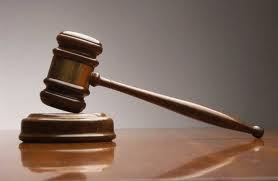

There are possibly more than a thousand reasons why we hold a second thought and give way for due reflection before we take an action. One of these reasons is probably rested in our belief in the existence of a super Being, our conviction in His supernatural abilities and our good understanding of the consequences of sin. This belief is purely a function of our morality as mortal men. It is simply
religious.
Another factor very far away from this religious view is in the face of the worldly punishment that our actions or even, inactions may attract. This is the law. The law more than any other thing is the reason why a public officer would hesitate before he converts public fund and a driver would be conscious of fastening his seat belt even though the belt makes him uncomfortable in his own car. What more, the law avails nobody, whether natural or artificial.
It is the law that a young person found guilty of an offence be remanded in a juvenile home. It is the law that an insane person found complicit in an act be detained in custody until the Governor’s pleasure is known. It is the law that law enforcement agencies found to infringe upon citizens’ rights pay substantial damages to such victims. It is also the law that a company improperly managed be wound-up.
Perhaps at this juncture, the law deserves a definition as simple as a body of laid down rules and regulations. Although these laws are laid down in written form in the case of Nigeria, it would take only a devil to know them all. Lawyers are also not excluded from this limitation in the knowledge of the law, as they are only trained to know how and where to find the law. This is the situation that every one has to manage and this explains the sight we often witness in the court especially in criminal matters whenever a man is convicted just before the judge pronounces the sentence. The plea of allocutus in our criminal procedure allows a convict to show why judgment should not be pronounced against him on a verdict of guilty, or, whether, he would like to make a statement on his behalf and present any information in mitigation of sentence. Whenever this door is opened for convicts, there submissions are usually the same; “I did not know what I did was against the law”. This claim of ignorance however does not hold water in the face of the strong and popular dictum that ignorance of the law is not and never an excuse. It matters only a little whether this claim of ignorance is believable or not. As I earlier pointed out, a mad man or young person cannot even be allowed in law to sleep on this mattress of ignorance. The ever dynamic nature of the law is also in favour of no one, as what is legal today could be illegal tomorrow. And it is only natural that our sense of inquiry be put on an edge. We want to know the law. We want to identify the law. We want to find the law.
However the law has since found its arm of punishment as a viable way of announcing its existence. It is only through this arm that we may best identify the law. It is striking that we do not coyly shake at the sight of a policeman simply because he is wearing a black and black uniform neither does some corrupt public officers shiver whenever the acronym EFCC or ICPC emerges from any angle. We naturally bow to these reflexes because we feel the presence or emergence of the law without a smiling face, if at all the law ever puts on a smiling face.
Although no innocent man should fear the law, in fact the law is not to be feared as it is just one of the living tools of a man. But it is a faceless tool. A faceless tool that is opened to justice through the instrument of penalty. A faceless tool that rewards no good. It would be one of the funniest ever proviso that anyone who returns a lost good should be rewarded with a sum of one million naira. The space for such reward and encouragement is not to be found in the law. No happy or impressed businessman would institute an action praying the court to commend his business partner for being honest in their business dealings.
Thus when we search and seek to understand and appreciate the law, especially as laymen, the most vivid part of the law that stares us in the face is that death penalty for that man found guilty of murder, the terms of imprisonment being served by that man found guilty of converting public funds, payment of fine, deportation, caning and a whole lot of other penalties the courts may impose as the facts of a case dictates.
And as such, the essence of the law is that we may recognise its power of punishment and leave the law as it is without attempting to break it, as a mere attempt to break the law is also punishable.
Olanrewaju Oloyede Esq.
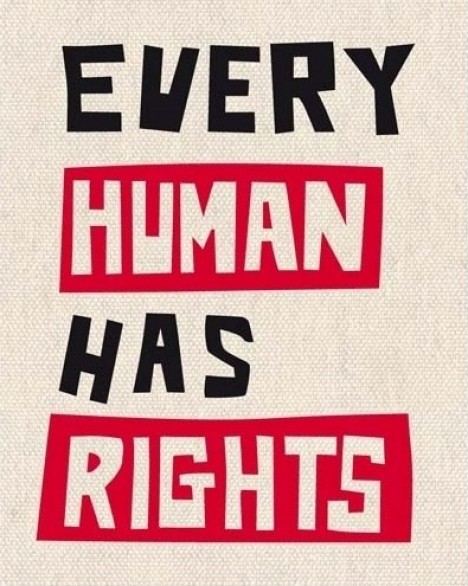

What are Fundamental Human Rights?
Fundamental human rights are rights which by their very nature have become fundamental to existence. They are not just mere rights. The Supreme Court declared of them in Saude V Abudullah (1989) 4 NWLR Pt. 116 page 387@419 as:
“fundamental rights are important and they are not just mere rights. They are fundamental. They belong to the citizen. These rights have always existed even before orderliness prescribed rules for the manner they are to be sought.”
It is a right which stands above the ordinary laws of the land and which in fact is antecedent to the political society itself. It is a primary condition
to a civilized existence, per Eso J.S.C. in Ransome Kuti & Ors V. A.G. of Federation & Ors (1985) 2 NWLR P. 211 @230.
As Nigerians, our Fundamental Human Rights are provided for under Chapter IV of the 1999 constitution. These rights include;
1. Right to life – Section 33 (1999 constitution) Every person has a right to life, and no one shall be deprived intentionally of his life,save in execution of a criminal offence of which he has been found guilty in Nigeria.
2. Right to dignity of human person – Section 34 (1999 Constitution) Every individual is entitled to respect for the dignity of person and accordingly no person shall be subject to torture or to inhuman or degrading treatment.
3. Right to personal liberty – Section 35 (1999 constitution) Every person shall be entitled to his personal liberty and no person shall be deprived of such liberty.
4. Right to fair hearing – Section 36 (1999 constitution) In the determination of a person’s civil rights and obligations,every person shall be entitled to fair hearing.
5. Right to private and family life – Section 37 (1999 constituion) The privacy of citizens,their homes,correspondences and telephone conversations is guaranteed and protected.
6. Right to freedom of thought, conscience and religion – Section 38(1999 constitution) Every person shall be entitle to freedom of thought,consceince and religiom,including freedom to change his religion or belief.
7. Right to freedom of expression and the press- Section 39 (1999 constitution) Every person shall be entitled to freedom of expression, including freedom to hold opinions.
8.Right to peaceful assembly and association – Section 40 (1999 constitution) Every person shall be entitled to assemble freely and associate with other persons or political party.
9. Right to freedom of movement – Section 41 (1999 constitution) Every citizen in nigeria is entitled to move freely throughout Nigeria and to reside in any part thereof.
10. Right to freedom from discrimination – section 42 (1999 constitution) No nigerian shall be discriminated upon on the basis of his community, ethnic group,sex,place of origin and politican opinion.
11. Right to acquire and own immovable property anywhere in Nigeria – Section 43 (1999 constitution) Every Citizen shall have right to own immovable property anywhere in nigeria.
12. Right against compulsory acquisition of property – section 44 (1999 constitution)
The above are fundamental human rights enshrined in the 1999 constituion and accorded to all Nigerians.
Adedunmade Onibokun Esq.


False Imprisonment is the illegal confinement of one individual against his or her will by another individual in such a manner as to violate the confined individual’s right to be free from restraint of movement. It is the act of depriving someone of freedom of movement by holding a person in a confined space or by physical restraint including being locked in a car, driven about without opportunity to get out, being tied to chair, or locked in a closet.
False imprisonment often involves the use of physical force, but such force is not required. The threat of force or arrest, or a belief on the part of the person being restrained that force will be used, is sufficient. The restraint can also be imposed by physical barriers or through unreasonable duress imposed on the person being restrained.
To succeed in an action for false imprisonment with regard to police arrests, the victim must show that it was the defendant who was actively instrumental in setting the law in motion against him. For instance if Biola’s money is missing and she reports to the police that she confidently believes it was Chidi who stole it, if Chidi is subsequently arrested by the police but later found innocent and set free, Chidi can sue Biola for false imprisonment, however in other to succeed, Chidi must prove that it was Biola’s false report to the police that led to his false imprisonment.
It should however be noted that the position of the law is that an action for false imprisonment will not lie against a private individual who merely gave information which led the police on their initiative to arrest a suspect.
An individual alleging false imprisonment may sue for damages for the interference with her or his right to move freely. An individual who has suffered no actual damages as a result of an illegal confinement may be awarded nominal damages in recognition of the invasion of rights caused by the defendant’s wrongful conduct. A victim who has suffered injuries and can offer proof of them can be compensated for physical injuries, mental suffering, loss of earnings, and attorneys’ fees. If the confinement involved malice or extreme or needless violence, a plaintiff may also be awarded Punitive Damages


Negligence is the breach of a legal duty to take care which results in damage to another, in other words Negligence is lack of proper care and attention or careless behavior. The Black’s Law dictionary on the other hand defines Negligence as the failure to exercise the standard of care that a reasonably prudent person would have exercised in a similar situation.
There are 3 elements that constitute negligence, which include;
i. A legal duty owed by A to B.
ii. A breach of that legal duty.
iii. Consequential damage to B which can be attributed to A’s conduct.
The principle of a legal duty or duty of care provides that one is liable for any of his actions which cause harm to his neighbour whether he intended to or not. This means that one must take reasonable care to avoid acts or omissions which you can reasonably foresee would be likely to injure your neighbour. The core idea of negligence is that people should exercise reasonable care when they act by taking account of the potential harm that they might foreseeably cause harm to other people
Who then is my neighbor you may ask?, your neighbor is any person who is so closely and directly affected by your action. The test for determining negligence is objective and depends on the principle of reasonableness, which means the question “what will a reasonable person in such situation do?”, is asked in other to determine negligence, thus each case is determined in the light of its own peculiar facts.
Any person who suffers damage from the negligent act of another and who is able to prove such negligence will be entitled to damages. Through civil litigation, if an injured person proves that another person acted negligently to cause his injury, he can recover damages to compensate for his harm. Proving a case for negligence can potentially entitle the injured plaintiff to compensation for harm to their body, property, mental well-being, financial status, or intimate relationships.